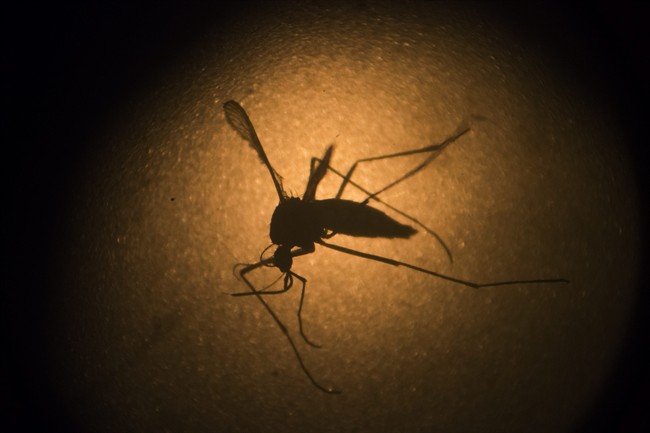Canadian health officials have confirmed the first positive case of sexually transmitted Zika virus in the country.

The Public Health Agency of Canada (PHAC) and the Ontario Ministry of Health said in a joint statement Monday the case was confirmed at the National Microbiology Laboratory.
“The individual from Ontario is suspected to have contracted the virus from a sexual partner who was diagnosed with Zika virus after travelling to an affected country,” according to the statement.
While bites from infected mosquitoes remain the primary way to get Zika virus, sexual transmission of the virus is also possible.
READ MORE: U.S. health officials confirm first Zika case spread through sex
“We want to remind Canadians that there have been no confirmed cases of locally-acquired Zika virus through mosquitoes, and that the overall risk in Canada remains very low; mosquitoes known to transmit the virus are not established in Canada and are not well-suited to our climate,” said Dr. Gregory Taylor, Chief Public Health Officer in a statement.
As of April 25 there were 55 travel-related cases of the virus and one locally acquired case through sexual transmission in Canada, according to the federal government.
Last week, health officials in B.C. confirmed two pregnant women were among seven individuals in B.C. who tested positive for Zika virus.
The women were being monitored by their family doctors and experts at the B.C. Women’s Hospital and no complications in their pregnancies have been reported, according to the the B.C. Centre for Disease Control. So far 635 patients from British Columbia have been tested for Zika virus, according the B.C. CDC.
“At this point, nobody’s been hospitalized and we have not heard of any pregnancy complications associated with these women,” said Dr. David Patrick, an epidemiologist at the B.C. Centre for Disease Control. “It’s the minority of Zika-affected pregnancies that end with an unfortunate outcome. We can be hopeful for these women.”
READ MORE: What doctors know about how it potentially spreads
Earlier this month, the U.S. Centers for Disease Control and Prevention (CDC) confirmed, after much speculation, that Zika virus caused microcephaly and other birth defects.
Babies with microcephaly are born with abnormally small heads that can result in developmental problems.
“We are also launching further studies to determine whether children who have microcephaly born to mothers infected by the Zika virus is the tip of the iceberg of what we could see in damaging effects on the brain and other developmental problems,” Tom Frieden, director of the CDC, told reporters.
READ MORE: Reports 7 people in BC, including 2 pregnant women, have Zika virus
More than 30 countries in South America, Latin America and the Caribbean have reported the virus that is transmitted by the Aedes mosquito, also known for spreading other viruses like Dengue and West Nile.
Symptoms of Zika are low-grade fever, rash, conjuctivitis and headache lasting up to a week.
Health officials are recommending pregnant women or women planning to get pregnant not travel to areas where Zika is circulating.
The PHAC also warned that Zika virus can persist for an extended period in the semen of infected males and strongly urged men to use condoms with any partner for six months upon returning from a Zika-affected countries.
*With files from the Canadian Press












Comments